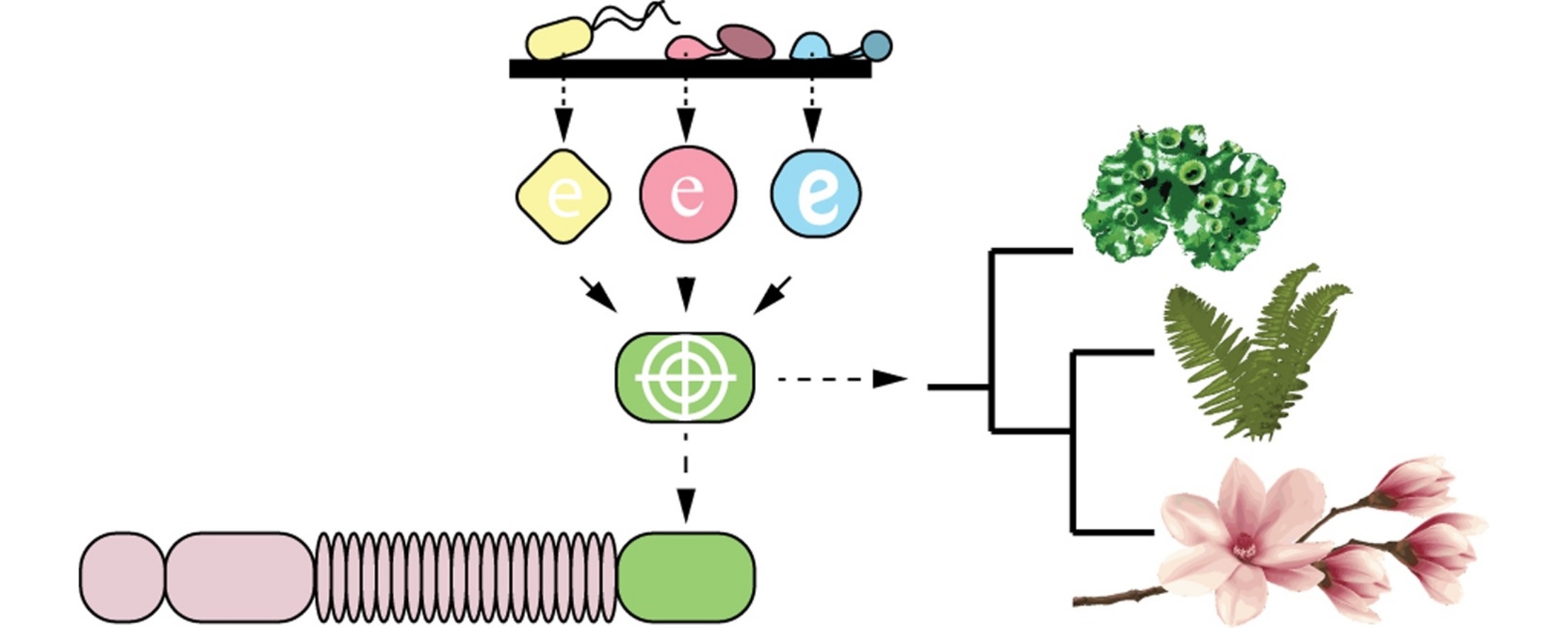OpenPlant postdoc Phillip Carella, from the lab of Dr Sebastian Schornack in the Sainsbury Laboratory, Cambridge, has published his research on the targets of effector proteins in green plants.
Abstract
Plant-associated microbes secrete effector proteins that subvert host cellular machinery to facilitate the colonization of plant tissues and cells. Accumulating data suggests that independently evolved effectors from bacterial, fungal, and oomycete pathogens may converge on a similar set of host proteins in certain angiosperm models, however, whether this concept is relevant throughout the green plant lineage is unknown. Here, we explore the idea that pathogen effector molecules target host proteins present across evolutionarily distant land plant lineages to promote disease. We discuss that host proteins targeted by phytopathogens or integrated into angiosperm immune receptors are likely found across green plant genomes, from early diverging non-vascular lineages (bryophytes) to flowering plants (angiosperms). This would suggest that independently evolved pathogens might manipulate their hosts by targeting `vulnerability’ hubs that are present across land plants. Future work focusing on accessible early divergent land plant model systems may therefore provide an insightful evolutionary backdrop for effector–target research.
Find the full article at
Carella P, Evangelisti E, Schornack S. Sticking to it: phytopathogen effector molecules may converge on evolutionarily conserved host targets in green plants. Current Opinion in Plant Biology 44, August 2018, Pages 175-180; https://doi.org/10.1016/j.pbi.2018.04.019

